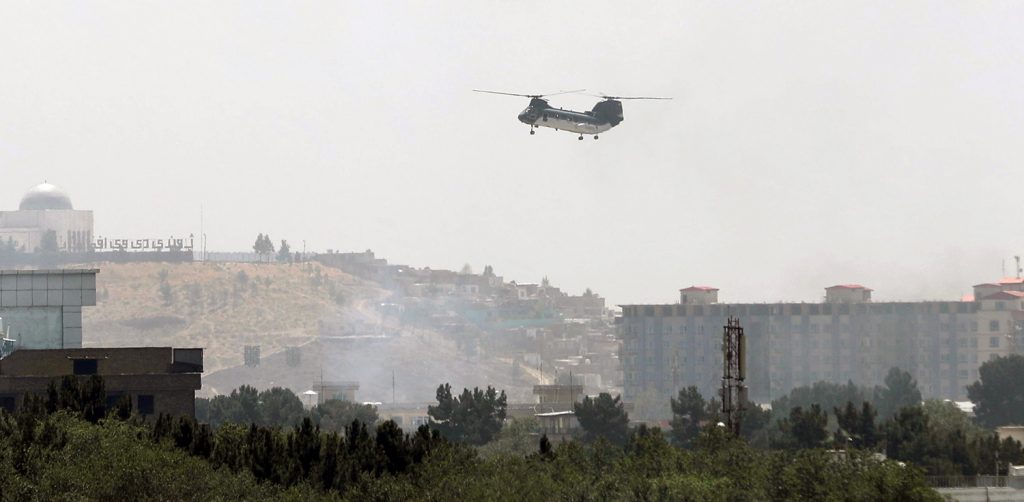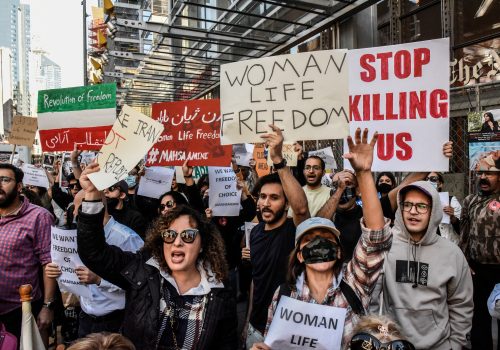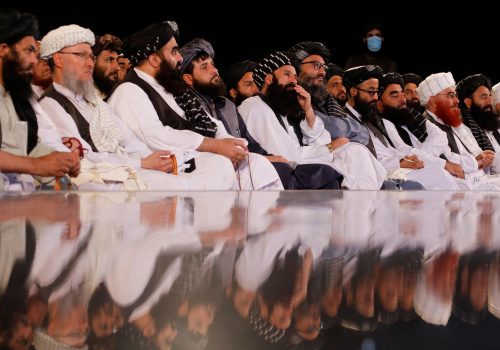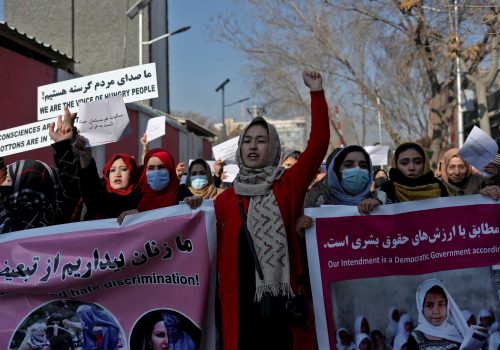The Moscow Format Consultations on Afghanistan, launched in 2017, is a regional platform on Afghanistan involving the special envoys of Russia, Afghanistan, India, Iran, China, and Pakistan. Its mandate is to facilitate political reconciliation between the then-internationally backed Kabul government and the Taliban, establish peace, and ensure regional security. Moscow assumed the lead in this process based on its national concerns and interests in Afghanistan, most notably on two key issues. The first issue was centered around the potential threats due to the spread of instability, violence, and extremism in Afghanistan and the rest of Central Asia. The second was related to the growing inflow of Afghan heroin to the Russian market. Geopolitical interests related to Moscow’s opposition to any US or Western security presence in Central Asia undergirds Russia’s motives to lead such processes.
April 2017 saw the first round of consultations with Russia, Afghanistan, India, Iran, Kazakhstan, Kyrgyzstan, Pakistan, Tajikistan, Turkmenistan, and Uzbekistan in attendance. Five years later, on November 16, 2022, all of these countries—minus Afghanistan—were invited. While there is merit in this omission of the Taliban, it demonstrates that Moscow’s policies regarding Afghanistan remain unclear. It also highlights Moscow’s uncertainty about the Taliban’s stance and relationship with Washington, especially given the Taliban’s failure to gain internal and external legitimacy.
However, there are ways that Afghans representative of human rights, politically unaffiliated with the Taliban, or otherwise not associated with the regime could have been included in this latest round of consultations.
A quick look back shows that Moscow and the Taliban initially seemed to envision a partnership that could agree on several issues. For example, the Taliban expected Russia to be the first to recognize them, and Moscow expected that the Taliban would cooperate in combating terrorism and insurgency. However, these expectations have yet to be met by both sides. In addition, the Taliban has failed to meet regional countries’ demands to establish an inclusive government and ensure women’s rights to pursue work and education.
The failings of all parties leave many questions unanswered. How effective was this process in addressing regional security, and did it bring any semblance of political reconciliation as it was meant to do? Processes such as these are essential for the region, as they bring countries together for dialogue and consultation on issues of concern. However, the countries involved in this consultation have yet to address, let alone resolve, fundamental issues related to regional security and a political settlement for Afghanistan.
Fundamental issue #1: All parties interested in Afghanistan and its regional security should be involved in multilateral processes.
The Moscow process intentionally omitted Western countries. This exclusion could create the possibility of a two-bloc approach—with an Eastern bloc dominated by Russia, China, and Iran, and a second bloc dominated by Western powers. While all of these regional countries have stressed and pushed the Taliban to adopt inclusive Afghan governance and adhere to the protection of women’s rights, concerns remain that an Eastern bloc could compromise Afghanistan’s human rights and inclusive governance—something that can bring the country into the middle of a two-bloc crisis. Given that regional countries’ most significant concern are the security risks that Afghanistan under the Taliban presents, this scenario should be seriously considered. The second risk is that a potential other (Western) bloc would engage in constant negotiations for its interests without settling on an explicit agreement or outcome for peace and security.
A successful platform needs to maintain patience, demonstrate inclusivity, and provide a space for all parties to present their ideas and concerns. For example, one common concern of all countries in the region is related to the potential security threat and radicalization that could emerge from Afghanistan. The commonly held perception is that these threats are reduced by simply engaging with the Taliban. However, the group has ideological and tactical relationships with transnational terrorist groups in the region, and the rifts among them are always short-lived. The Taliban’s survival and sustainability depends on their association with their counterparts and insurgent groups with whom they share a common ideology and goal. Therefore, it would not be pragmatic to treat the Taliban as a reliable counterterrorism partner for regional countries or the West.
Fundamental issue #2: The security of the countries in the region is interconnected, and each country’s domestic political and economic conditions will determine the regional security architecture.
Afghanistan, Pakistan, and Iran are going through severe political and economic crises domestically. These developments guide their policies of engagement with the world outside, including relationships with others in the region. These countries tend to align with regional and global powers that promise support and assistance in tackling crises. Notable examples are how Iran looks to Russia, or how Pakistan looks to China. Such alignments determine the formation of partnerships and relationships and significantly impact peace and stability in Afghanistan. If the Moscow process claims to address regional security, it must facilitate an intensive regional platform for countries to address and negotiate their interests. The conclusion should move beyond insincere “lip service” and ensure a pragmatic path to conflict resolution.
Fundamental issue #3: It is time to assess the top-bottom multilateral processes.
If Moscow is genuine in seeking and assuring political settlement and stability in Afghanistan, then why is the broader participation and representation of people from Afghanistan missing in this process? Without a recognized government, civil representation could advocate for Afghans’ aspirations and demonstrate a mechanism based on inclusivity, something the countries involved in the Moscow process have expressed interest in.
The time is ripe for the situation in and around Afghanistan to change. The direness of the crisis requires a major shift in how multilateral dialogues on Afghanistan’s peace and reconciliation and regional security issues are formatted. Since security is a shared interest of all countries in the region, it requires an integrative negotiation process that is inclusive of all pertinent actors who can put forward all relevant issues.
Only then can an international consultative process on Afghanistan culminate in clear and mutually beneficial agreements and conclusive solutions.
Dr. Nilofar Sakhi is a non-resident senior fellow at the Atlantic Council’s South Asia Center.

The South Asia Center is the hub for the Atlantic Council’s analysis of the political, social, geographical, and cultural diversity of the region. At the intersection of South Asia and its geopolitics, SAC cultivates dialogue to shape policy and forge ties between the region and the global community.
Related content
Image: CH-46 Sea Knight military transport helicopter flies over Kabul, Afghanistan on August 15, 2021. Photo via a Reuters stringer.



